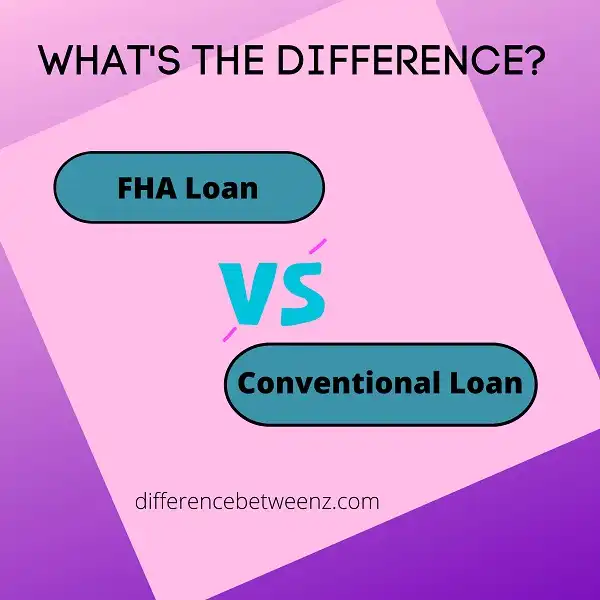When you are shopping around for a mortgage, you will likely hear about FHA and conventional loans. These are two of the most common types of mortgages, but they have some key differences. Here’s a look at what sets these two types of mortgages apart.
What is FHA Loan?
FHA Loan is a mortgage loan that is insured by the Federal Housing Administration (FHA). This type of loan is available to homebuyers with a credit score of 580 or higher. FHA loans can be used to purchase a home or refinance an existing mortgage. FHA loans typically have lower interest rates than conventional loans, making them a good choice for homebuyers who are looking to save money. FHA loans are also available to homebuyers with less-than-perfect credit, though they may have to pay a higher interest rate. If you’re considering an FHA loan, be sure to compare offers from multiple lenders to get the best deal.
What is a Conventional Loan?
A Conventional Loan is a mortgage that is not backed by a government agency. Conventional Loans are typically available with either a fixed interest rate or an adjustable interest rate. Conventional Loans can be used to purchase a primary residence, a second home, or an investment property. Conventional Loans typically require a down payment of at least 5%, but there are some Conventional Loan programs that allow for a down payment as low as 3%. Conventional Loans also typically have stricter credit standards than government-backed loans, making them a good option for borrowers with good credit.
Difference between FHA and Conventional Loans
FHA stands for Federal Housing Administration. FHA loans are a popular choice for first-time homebuyers because they have less strict credit requirements and down payment options as low as 3.5%. However, FHA loans are not without their pitfalls – they come with higher mortgage insurance premiums, and home sellers can often be reluctant to accept offers from FHA buyers. Conventional loans are another common type of mortgage loan. Unlike FHA loans, conventional loans are not insured by the federal government, so they tend to have stricter underwriting standards. However, conventional loans often offer lower interest rates and may allow you to avoid paying private mortgage insurance if you make a down payment of 20% or more. Ultimately, the best type of loan for you will depend on your personal circumstances. Talk to a lender to see what option makes the most sense for you.
Conclusion
In conclusion, there are several key differences between FHA and Conventional Loans. It is important to understand these differences before deciding which loan product is best for you. At the end of the day, both types of loans offer great opportunities for homebuyers.


